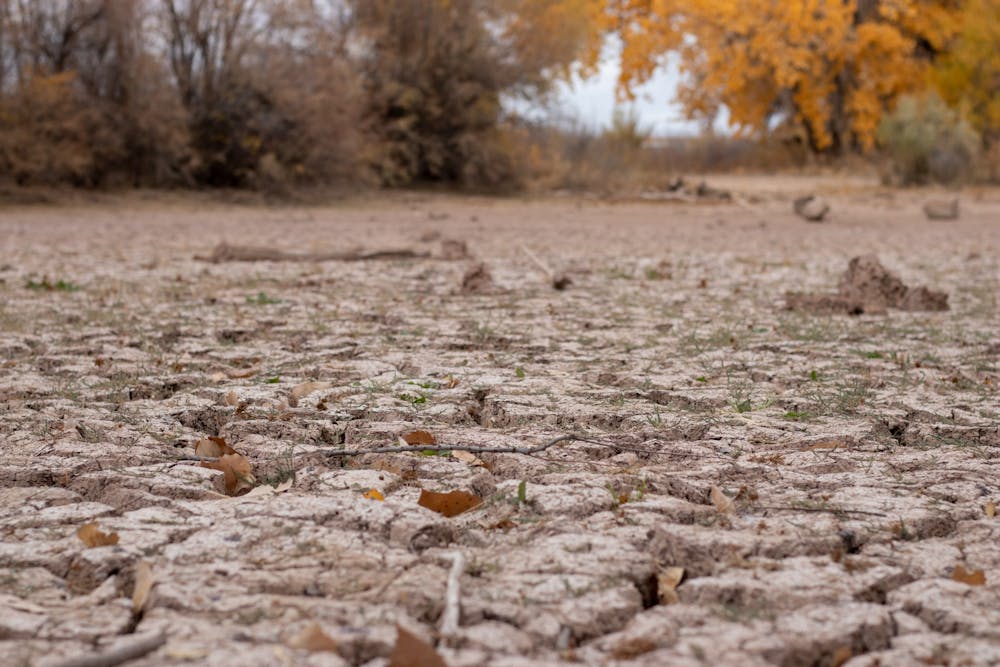Climate change has been a prominent topic as the window to reverse the damage already wrought to the environment by anthropogenic sources narrows by the day. The Land Witness Project is a collection of personal stories about the detrimental impact of climate change in New Mexico.
“It’s not just (about) stories but getting people to actually take action,” Nancy Singham, a writer for the project, said.
The project started in June 2019, but the launch was delayed until September 2020 due to the coronavirus pandemic. In-person events related to the project have also been delayed until it’s safe to hold them, according to Singham.
Singham said the project is about the “love of our land and the need to conserve and adapt to water shortages and (work) on climate change — this is something that we really all have in common.”
Since New Mexico is the most water-vulnerable state in the nation, Singham said the project is an attempt to evoke positive change in the state’s handling of precious water resources.
“Everybody in New Mexico is drawn together because of their concern for water,” Singham said.
Various speakers, including Lorenzo Candelaria, Kevin Cobble and Beata Tsosie-Peña shared their stories on the project’s website about the negative impact climate change has had on their lives.
“It’s a lot of multiple and cumulative harms happening at once from all fronts,” Tsosie-Peña said, speaking on behalf of Tewa Women United.
Localized to New Mexican issues, Singham talked about various ways locals could help, from farming to legislation.
“Things need to come to a serious halt, as far as pushing things through in times of pandemic and during COVID when people don’t have the capacity and a holistic way to respond, in a way that’s inclusive and meaningful and culturally relevant to communities,” Tsosie-Peña said.
Over 80% of Santa Clara Pueblo tribal lands have been effectively lost due to wildfires, with factors like long-term drought and nuclear weapons production affecting lands, according to Tsosie-Peña.
Tsosie-Peña said politics causes mass destruction in terms of climate change. However, she also said moves can be made in the right direction, as seen with the Green Amendment or the Red New Deal.
Get content from The Daily Lobo delivered to your inbox
Tsosie-Peña said the Red New Deal is about “adjusting climate change from an Indigenous perspective and from a perspective that (considers) the larger political context around colonialism and capitalism.”
She also emphasized that more respect for Indigenous land needs to manifest in political activism and a shifting of values away from capitalism and toward respect for the land.
“There’s a lot that needs to happen politically, but we have to stop commodifying our environment,” Tsosie-Peña said. “This is an extension of colonialism with the environment and therefore on Indigenous peoples. We’re not separate from our environment, so that requires a shift in values; it requires a shift in consciousness and really honoring those ways of knowing of sustainability from the first people of these lands.”
Although it’s a long and tough battle, Singham encouraged everyone, including college students, to get involved.
“The best time to do those things would have been 20 years ago,” Singham said. “But the second best time to do all those things is right now.”
Singham highlighted that slowing climate change is a job that requires the combined effort of many people, not just individuals.
“We’re trying to shift the focus of solutions for climate change to social solutions, not just individual solutions,” Singham said. “Even if every single person in the country could afford to put a solar panel on their roof, it wouldn’t solve our climate change problem, so we really do need social solutions … They’re big problems, and they need big solutions.”
New Mexico is the third largest producer of oil and gas in the U.S., according to Singham.
“Our state specifically is in economic slavery to oil, gas and militarization, and that needs to change,” Tsosie-Peña said.
Fossil fuel production is one of the major contributors to climate change, and according to Singham, one solution is the banning of the environmentally costly practice of hydraulic fracturing (fracking).
“If all of the oil and gas reserves on the books of all of the oil companies in the world were burned, life would end on this planet basically. I mean, really, we can’t burn everything,” Singham said.
Tsosie-Peña agreed, adding that methane emissions are also a large problem.
“We have to curb capitalist consumption of planetary resources, and that’s also a part of a long term goal of abolishing capitalism,” Tsosie-Peña said, mentioning that major corporations are not held accountable for the immense harm their industries cause to the environment.
A study by Yale studied the effect of “pluralistic ignorance” — which is when people misjudge the attitudes and beliefs of the general public — and how this creates a silent barrier that prevents people from talking about and raising awareness of climate change.
However, Singham said 75% of New Mexicans care about climate change, which is a much larger statistic than the national average.
Singham said UNM specifically needs to get students to “participate in this fundamental shift that we have to make planet wise.”
“It’s life or death, there’s no question,” Tsosie-Peña said.
Megan Gleason is the culture editor at the Daily Lobo. She can be contacted at culture@dailylobo.com or on Twitter @fabflutist2716






